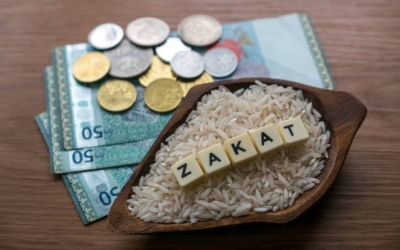Course description
The Fiqh of Ramadhan course provides a detailed study of the Islamic legal and spiritual practices associated with the month of Ramadhan. This six-week program will guide participants through the essentials of fasting, from the pre-dawn meal (suhoor) to the breaking of the fast (iftar), as well as the special prayers and acts of worship that are integral to the month. Participants will explore the rules of fasting, including the exceptions and allowances, and learn how to navigate various practical scenarios related to Ramadhan observance.
In addition to focusing on the shariah aspects of fasting, the course will delve into the spiritual dimensions of Ramadhan, helping participants cultivate mindfulness, gratitude, and a deep connection to Allah during this sacred time. Through interactive discussions and practical examples, attendees will gain clarity on the obligations, benefits, and etiquettes of Ramadhan, ensuring they are able to observe the fast with sincerity and devotion. The course will also address common misconceptions and provide a platform for participants to share their experiences and insights.
What will i learn?
- Understand the full scope of Ramadhan’s obligations and rituals.
- Be equipped to observe Ramadhan in accordance with the teachings of Islam, with clarity and confidence.
- Cultivate a deeper spiritual connection to Allah through fasting, prayer, and acts of worship.
- Gain insight into the social and communal benefits of Ramadhan.
- Feel empowered to make the most of Ramadhan, spiritually and practically, in their personal lives.
Requirements
- Internet connection & a device
Course Curriculum
Key Topics Covered:
Introduction to Ramadan: The significance of Ramadhan in Islam and the spiritual and physical benefits of fasting.
The Rules of Fasting: Understanding the obligations, exceptions, and allowances, including who is required to fast and who is exempt.
The Etiquettes of Ramadhan: Exploring the proper conduct during fasting, from intention (niyyah) to behavior during the day.
Suhoor & Iftar: Guidelines on the pre-dawn meal and breaking the fast, including recommended foods and prayers.
Taraweeh & Additional Worship: The importance of the nightly Taraweeh prayers and other acts of worship during Ramadhan.
The Night of Decree (Laylat al-Qadr): Understanding the significance of this special night and how to seek its blessings.
Zakat al-Fitr: The obligation of giving Zakat al-Fitr at the end of Ramadhan and its role in purifying the fast.
Spiritual Goals: Practical steps to maximize the spiritual benefits of Ramadhan, including self-reflection, repentance, and increasing devotion.
Social and Community Impact: How Ramadhan fosters compassion, empathy, and solidarity within the Muslim community.
Q&A and Discussion: Open sessions for participants to ask questions, share experiences, and discuss challenges in observing Ramadhan.
Learning Outcomes:
Upon completion of this course, participants will:
- Understand the full scope of Ramadhan’s obligations and rituals.
- Be equipped to observe Ramadhan in accordance with the teachings of Islam, with clarity and confidence.
- Cultivate a deeper spiritual connection to Allah through fasting, prayer, and acts of worship.
- Gain insight into the social and communal benefits of Ramadhan.
- Feel empowered to make the most of Ramadhan, spiritually and practically, in their personal lives.
Course Format:
- Duration: 6 weeks (6 sessions)
- Frequency: Weekly sessions
- Session Length: 1 hour
- Time: 4:00 PM to 5:00 PM IST
- Day: Saturdays
- Methodology: Interactive lectures, discussions, Q&A sessions
- Language: Urdu
- Course Fee: 600 INR
Who Should Enroll:
This course is ideal for Muslims who wish to deepen their understanding of the practices and spiritual significance of Ramadhan. Whether you are a beginner or someone seeking a more thorough understanding, this course will help you approach Ramadhan with sincerity and clarity. It is also suitable for anyone wanting to make their Ramadhan more meaningful, focusing not only on the physical aspects of fasting but also on spiritual growth and community welfare.
Join us on this transformative journey to experience Ramadhan with renewed understanding, deeper devotion, and a sense of spiritual enrichment. Let’s come together to make this Ramadhan a time of profound personal and communal growth.
Reviews
No Reviews found
₹600






